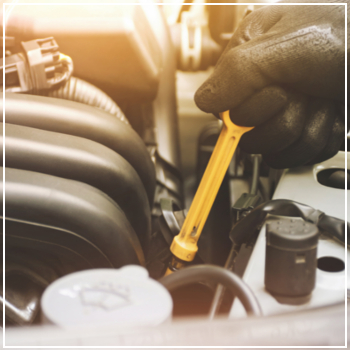Understanding the Fluids Your Car Needs
Unfortunately, about one in four cars on the road has at least one fluid that needs attention. If you're not sure how to check these fluids yourself, understanding their roles and how to monitor them can help you avoid costly repairs down the line. Engine oil is essential for keeping your car’s internal parts moving without friction. Without it, metal components would grind against each other, leading to serious wear and tear. It's recommended to change your oil every 3,000 to 5,000 miles, depending on your vehicle and driving conditions. If you want to check it yourself, park your car on a flat surface and let the engine cool. Locate the dipstick — usually near the front of the engine. Pull it out, wipe it clean with a rag, then reinsert and pull it out again to check the level. The oil should be between the “full†and “add†marks. Also, look at the color — fresh oil is golden, while dark, sludgy, or burnt-smelling oil means it’s time for a change. Transmission fluid keeps your car’s gears running smoothly. It helps transfer power from the engine to the wheels. If your car hesitates when shifting gears or feels jerky, it could mean low or dirty transmission fluid. Newer cars may not need frequent changes, often up to 60,000 to 100,000 miles. But it’s still wise to check the color and consistency. Fresh fluid is red and clear; older fluid may turn brown and have debris in it. Coolant prevents your engine from overheating in hot weather and freezing in cold climates. It also helps prevent rust and corrosion inside the cooling system. You should top off your coolant every 50,000 miles, but regular checks are important too. If it looks cloudy, dark, or smells odd, it might be time for a flush. Never use water as a substitute — it can cause damage over time. Brake fluid is crucial for your car’s stopping power. It transfers the pressure from your brake pedal to the brake calipers. If the fluid is low or contaminated, your brakes may not work as effectively. Changing brake fluid is best left to professionals, as it requires special tools and techniques to avoid contamination. Regular inspections can help catch problems early and ensure safe braking performance. Power steering fluid makes turning the wheel easier by reducing resistance. If it’s low, your steering may feel stiff or unresponsive. Checking the fluid level is simple — just locate the reservoir under the hood and make sure it’s within the recommended range. This fluid keeps your windshield clean, allowing for better visibility. If you use your wipers often, especially in winter, you’ll need to refill this fluid regularly. It’s an easy task you can do at home, and it only takes a few minutes. In addition to the main fluids, there are others that play a role in your car’s performance: Ignoring routine checks on these fluids can lead to decreased performance, higher fuel consumption, and even engine failure. Don’t wait until something breaks — schedule a service today and keep your car running safely and efficiently. Contact our Naugatuck shop to book an oil change or fluid inspection now. Aluminum window rail profiles are a fundamental component of modern window systems, offering a versatile and durable solution for residential, commercial, and industrial applications. These profiles serve as the framework that supports and secures the glass or other glazing materials within a window frame. Vertical Blind Rails,Vertical Blind Header Rail,Roller Shades With Side Tracks,Blind Head Rail Cover,aluminum plate,aluminum plates Foshan Knilex Aluminum Co., Ltd. , http://www.aluprofilefactory.com Car owners should regularly check the fluids that keep their vehicles running smoothly. Neglecting oil changes or using poor-quality coolant can lead to major issues, from engine damage to reduced braking and steering performance.
Car owners should regularly check the fluids that keep their vehicles running smoothly. Neglecting oil changes or using poor-quality coolant can lead to major issues, from engine damage to reduced braking and steering performance.Engine Oil
Transmission Fluid
Coolant (Antifreeze)
Brake Fluid
Power Steering Fluid
Windshield Washer Fluid
Other Important Fluids